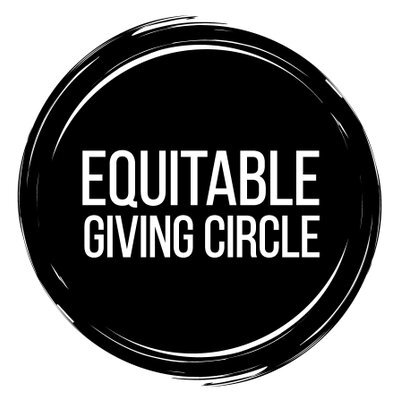mission + values
Equitable Giving Circle (EGC) is a Black Women and Black Femme led organization aiming to make large economic deposits into Portland BIPOC economy, while also encouraging community healing. We launched in Spring of 2020 with an idea and an ask of the community to trust in this vision and people not only believed us, but funded us.
egc history
In the fall of 2019 an Elder introduced co-founders AJ + Lillian under the guise that they would make good trouble together. The two started chatting and haven’t stopped since. Now we are celebrating 5 years of them making good trouble together.
When we originally were dreaming up EGC, we were planning on creating something that was more of a side project and focused on supporting Black + Brown Women and Femmes in the private sector with small grants, with cash mobs, networking, and collective trainings and other basic business support. And then the pandemic hit. AJ had been working with some local farmers and as a big fan of Dr. Booker T. Whatley and suggested we buy CSA boxes from local BIPOC farmers and give them away to local Black and Brown families. When we launched a fundraiser to do this, we raised over $35K in donations in a single week. AJ was like let’s double down, and we did. The community matched our excitement, and from there, things took off. By June of 2020 we were delivering CSA boxes to community members across the city, and we have been doing our food programming since. Today, we deliver to 225 Families a week and see another 180 at the Market each Thursday.
How we move and have built our body of work is very intentional. The way we are reimagining our food system is from a proactive approach. Our mainstream current food system relies on shipping food all over the world which impacts freshness and nutritional value, as well as being a major carbon producer.
Within typical emergency or crisis food systems most of the food distributed is gleaned or expired food, coming from the leftovers of our mainstream food system (think grocery stores). Not only is this morally inept as this practice of gleaning giving oppressed people expired or old food a direct practice from chattel slavery, this model creates a lot of waste.
At EGC we want to see solutions and models that move us forward, that empower the community, that are sustainable and forward thinking. EGC’s food system vision is focused on local and uplifting the most marginalized among us. By sourcing the food we distribute from local Black + Brown Farms and BUYING the produce we are able to ensure freshness and optimal nutritional value, we are helping to build economic power in our small community, and we are also able to help curb carbon impacts by leaning into our local agriculture community. Within our model we are able to both support our community and boost the local agriculture community. It is the win-win for us!
Since our inception we have rolled out a variety of additional programming all inspired from community requests. We really have that call and response dialed down, and through the ways we have answered community needs we have not wavered from leading with pushing tangible resources out into the community. Our community, the Black Community is not looking for more talking or planning, we need action and tangible support.
egc mission + Values
Our mission is to inspire and create economic empowerment through authentic engagement and action within our community. We will bring forth healing from late-stage capitalism and colonialism through reparative and radical giving.
mission
As an organization formed to address glaring inequities created by years of institutional bias, discriminatory policy and systematic divestment from Black and Indigenous communities, our values are strong.
values
We envision a future where systems are designed to ensure that everyone can thrive and live their best lives.
vision
Who we Serve
We serve Black + Brown folks. Our work is intersectional meaning within the population of Black + Brown folks that we serve we also serve Elders, children, single parents, folks who have disabilities, LGBTQIA folks, immigrants + refugees, and foster families. Our work is very intersectional.

